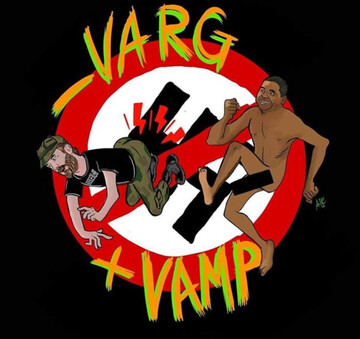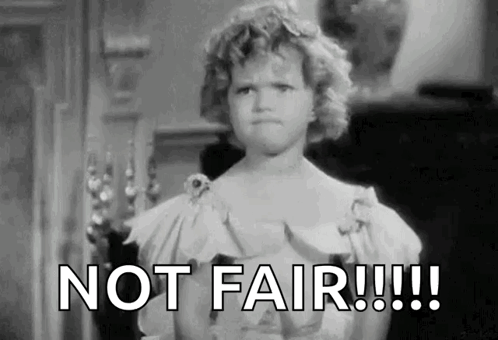Also the reason my company bailed on a water project in Jordan because people were drilling into the water distribution pipes and stealing the water.
So much water was wasted to the desert because of this. ![]()
Also the reason my company bailed on a water project in Jordan because people were drilling into the water distribution pipes and stealing the water.
So much water was wasted to the desert because of this. ![]()
We had Colgate Gel over in the USA, but we weren’t so exuberant about it.
We did, however, have the Cavity Creeps who were trying to invade Toothopolis.
Which in retrospect seems a little like anti-immigrant fear mongering.
Yeah, I wouldn’t want those two in my teeth.
The music reminds me of Kurt Weill.
I’m behind b/c toothache has been ruining my life.
@ProfOddfellow has been turnin’ 'em out like ahem mad lately, too ![]()
![]()
![]() but the quality has not suffered one ahem bit!
but the quality has not suffered one ahem bit!
Agreed on both counts!
Continuing the thread of weirdness and tooth decay, this was uploaded just yesterday.
The animation of Jack Sweet is pretty impressive.
I remember it working on me. I wanted it so much as a little kid. My parents were ok with buying it, because, hey- the kid wants to brush his teeth, fine by us.
Pictures of a naked Brazilian footballer flooded Mr. Trump’s social media. Brazilian internet users often send a famous photo of Mr. Marcos André Batista Santos, AKA Vampeta, to virtual enemies, especially those inclined towards authoritarianism. This act os protest is called Vampetaço.
“I think it’s cool. Really, like that, I saw it go viral. I even saw here at the protest on Av. Paulista, at FIESP, a big photo of me. I work at Jovem Pan (the local radio), there on Avenida Paulista, right next door. I think it’s cool, I have fun”, said the five-time champion for the Brazilian team in 2002.
If for many people, the photo became a meme or mockery, for the former player it represents something bigger: the Brazilian’s irreverent spirit in the face of political tensions.
“So, for me, it’s an honor, because whoever messes up is fucked, they’re going to get slapped. I’m having a lot of fun, I think it’s cool. And congratulations to whoever came up with this idea. I was very happy.”
The image that emerged in a provocative photo shoot in the 90s became an unlikely symbol of digital resistance and, in Vampeta’s own words, a clear message to Brazil’s enemies: beware of the next vampetaço.






The doll of the movies is way scarier than the real one.
Right? The real one is just a raggedy ann doll!
True story, when my aunt was a very little kid (the youngest of the family) maybe 3, they all went to World’s Fair in Montreal. One of the exhibits was a Raggedy Ann and Andy display, with like… hundreds of dolls. They were afraid she was gonna lose it, so they did not take her in to see it. They didn’t even tell her until later. She’s still salty about it. this was in the 60s…
It is as scary as her.


In fairness, all the Ed and Lorraine Warren’s lore seems to be so naive, campy, kitsch and even silly. Due to the intense religious syncretism in my country, and the pervasiveness of spiritualist beliefs, any family here has at least one scary story involving the supernatural and other most frightening entities. The funny thing is that it invariably becomes a casual topic to be discussed at a Sunday lunch or any other family gathering. “Oh, do you remember that day your aunt caught a ghost snooping around her sewing things?” or “Your cousin became like this because of that spell they did for him. He only found a way when he gave offerings to the Orixas.”
Indeed, which is why it works so well as books and now films, I think.
There is lots of this kind of folk stories in US culture, too, especially among working class people.
It is nice. Our prejudice doesn’t let uss see how are the american people for real. We look at your country though the lens of Hollywood, TV and Pop music.
Yeah, I love folk culture in America. Much like Brazil, it’s highly syncretic and can seem very weird. But it can shape popular culture at times, with horror movies being a prime example.
I’ve always thought that the US culture hegemony was more about the medium, rather than the specific message. If you take musical genres like hip-hop and punk, they’ve been globalized, but wherever they appear, they address the local conditions and struggles of the people in the marginalized communities (probably less so with punk, but certainly the case with hip-hop). It’s true everyone is consuming our homegrown culture (everyone has been reading, comics, for examples since the early days of the Cold War or listening to jazz, etc), but they also embrace that culture and turn it around to express themselves and their specific conditions of life. I think it can be argued that adopting the form is still a kind of cultural imperialism, but it’s blunted a bit, maybe…